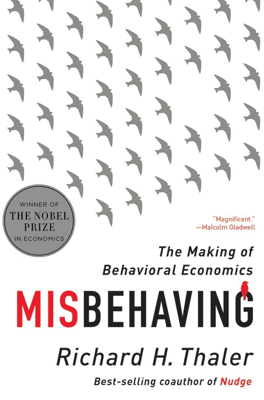Football
Insights from NFL Draft Decision-Making
Richard Thaler explores decision-making in high-stakes environments through the lens of the NFL Draft, challenging the notion that higher stakes lead to more rational decisions. Thaler's research, conducted with former student Cade Massey, focuses on whether NFL teams efficiently value draft picks, specifically questioning if teams overvalue early draft picks relative to their actual performance contribution.
Key Findings and Economic Implications:
Overvaluation of Early Picks: Thaler and Massey hypothesized that NFL teams place too much value on early draft picks. This overvaluation is supported by psychological tendencies such as overconfidence, extreme forecasting, the winner's curse, false consensus effect, and present bias, all of which can distort decision-making processes.
Market Value of Draft Picks: Using historical trade data, Thaler and Massey demonstrated a steep valuation curve for draft picks, where early picks are significantly more valued than later ones. They attributed this to a widely used valuation chart created by Mike McCoy for the Dallas Cowboys, which has been adopted across the league.
Efficiency of the Draft Pick Market: The study concluded that the market for draft picks is inefficient. Teams typically sacrifice more future value than warranted when trading up for higher draft slots. Analysis revealed that players from later rounds often offer higher surplus value—an excess of performance over cost—compared to top-drafted players.
Time Preferences and Future Trades: Teams discount future draft picks at an astonishingly high rate, suggesting a strong bias towards present benefits. Thaler and Massey noted that teams effectively apply a 136% discount rate per year when trading this year's picks for next year's, indicative of severe present bias.
Advice for NFL Teams:
- Trade Down: Accumulating more lower-round picks can yield greater collective value than a single, high-value early pick.
- Draft-Pick Banking: Act as a draft-pick banker by trading away current picks for better picks in future drafts, exploiting the market's inefficiency in time valuation.
Behavioral Implications in Business and Sports Management
Thaler’s findings extend beyond sports, shedding light on broader business and management practices. The NFL Draft case illustrates how even in theoretically competitive markets, significant inefficiencies can exist due to human psychological biases and structural market imperfections. Owners and managers often make suboptimal choices based on gut feelings or misaligned incentives, rather than empirical analysis or long-term strategic thinking.
Rejection of the Becker Conjecture in NFL Context: While Gary Becker posited that the sharpest minds should naturally navigate towards roles where sophisticated analytical skills are crucial (the 10% of people proficient in complex analysis), Thaler's NFL study suggests otherwise. Even high-stakes roles often fall prey to intuitive, rather than analytical, decision-making. The research showed that optimal strategies (like those relating to fourth-down decisions in football) are frequently overlooked in favor of traditional, less effective approaches.
Corporate Strategy and Human Nature: Thaler suggests that in high-pressure decision-making environments, managers revert to intuitive decisions. Comprehensive transformation in decision-making approaches requires not just analytical tools and data, but a cultural shift within the organization that reassures decision-makers about the benefits of unconventional strategies and the safe exploration of innovative solutions.
In concluding, Thaler’s examination of the NFL Draft illustrates profound lessons on human behavior and decision-making inefficiencies that can pervade even the most professional settings, advocating for a behavioral economics perspective in evaluating and enhancing organizational strategies in sports and beyond.
